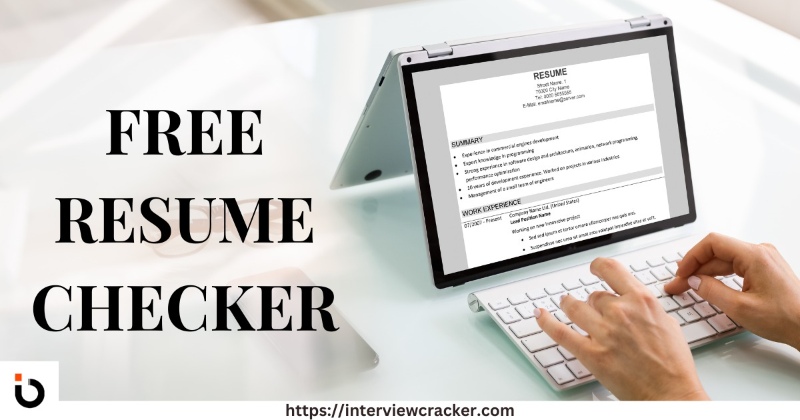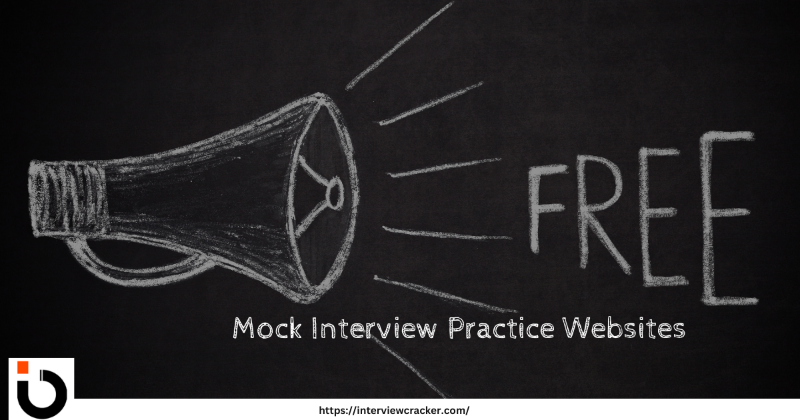Landing a competitive role requires more than enthusiasm—it demands preparation. In this comprehensive guide, we’ve gathered the top 50 Business Development Associate Interview Questions—from prospecting tactics and sales strategies to relationship building and performance metrics—paired with smart, real-world answers. Whether you’re a seasoned sales pro or stepping into business development for the first time, these curated Q&A insights will help you anticipate interviewer expectations, showcase your expertise, and confidently close every conversation. Let’s dive in and arm you with the precise responses that set you apart.
Table of Contents
ToggleWhat is Business Development Executive | Business Development Associate?
A Business Development Executive is a professional responsible for identifying growth opportunities and building strategic relationships to expand a company’s market presence and revenue. Their primary role involves researching potential clients or partners, pitching products or services, negotiating contracts, and devising strategies to achieve sales and revenue targets. They often work closely with the sales and marketing teams, analyzing market trends and competition to develop effective business strategies that promote company growth.
What is Full Form of BDE?
BDE Full form in sales is Business Development Executive. BDE Full form in job is also Business Development Executive.
What is Full Form of BDA? | What is BDA Meaning ?
BDA Full form in sales is Business Development Associate. Business Development Associate meaning is same as business development executive. Their primary job is to grow company’s market presence and revenue
How to Ace Business Development Executive (BDE) Interview?
Interviews play a crucial role in the selection process for any job position, and the role of a BDE ( BDE full form is Business Development Executive) is no exception. Business Development Associates or Business Development Executives are responsible for driving growth and expanding business opportunities for their organizations. To assess the suitability of candidates for this role, employers often ask a set of specific questions that evaluate their skills, experience, and aptitude for business development. It’s good to know beforehand what interviewers are looking for in sales talent.
In this blog post, we will explore the different types of interview questions typically asked when hiring a Business Development Associate(BDA)/ Business development executive.

Top 10 Business Associate Interview Questions with Answers
1. Can you describe your experience with business development and why you are interested in this role?
This question allows the interviewer to gauge the candidate’s level of experience and passion for business development. The candidate should highlight relevant achievements, projects, or strategies they have implemented in previous roles, demonstrating their understanding of the field and their enthusiasm for the role.
2. How do you identify potential business opportunities and leads?
Business Development Associates need to possess strong prospecting skills. The interviewer will assess the candidate’s ability to identify and evaluate potential leads. The candidate should discuss their approach to research, market analysis, and lead generation techniques, showcasing their ability to identify and pursue business opportunities effectively.
3. Can you describe a successful business deal or partnership you have closed in the past?
This question assesses the candidate’s ability to close deals and form partnerships. The candidate should provide a detailed account of a successful business deal or partnership they have orchestrated, highlighting the steps they took, the challenges they faced, and the outcome. This demonstrates their negotiation skills, relationship-building abilities, and their impact on the organization.
4. How do you build and maintain relationships with clients or stakeholders?
Business Development Associates need to be skilled at building and nurturing relationships with clients, stakeholders, and industry partners. The candidate should explain their approach to relationship building, including communication strategies, networking activities, and client retention techniques. They should emphasize their ability to develop long-term partnerships that drive business growth.
5. How do you adapt your business development strategies to different industries or markets?
Adaptability is crucial for Business Development Associates, as they may encounter diverse industries and markets. The candidate should showcase their flexibility and ability to tailor their strategies to suit different sectors or market segments. They should discuss previous experiences where they successfully adapted their approach and achieved positive results.
6. How do you handle rejection or setbacks in business development?
Rejection and setbacks are common in the field of business development. The interviewer wants to gauge the candidate’s resilience and ability to bounce back from challenges. The candidate should provide examples of situations where they faced rejection or setbacks, and how they overcame them. They should highlight their problem-solving skills, ability to learn from failures, and determination to succeed.
7. How do you leverage technology and tools for business development?
In today’s digital age, technology plays a vital role in business development. The candidate should demonstrate their familiarity with relevant tools, such as CRM systems, social media platforms, analytics tools, an ad intelligence tool, and marketing automation software. They should explain how they have effectively used technology to streamline processes, track leads, and improve overall business development efficiency.
8. How do you stay updated on industry trends and changes?
Business Development Associates need to stay informed about industry trends, market changes, and emerging technologies. The candidate should highlight their commitment to continuous learning and professional development. They can discuss their preferred sources of information, such as industry publications, webinars, conferences, or networking events.
9. Can you provide an example of a time when you collaborated with other teams or departments to achieve business goals?
Collaboration is essential for business development success, as it involves working with various teams and departments. The candidate should provide an example of a collaborative project they were involved in, showcasing their teamwork skills, ability to align goals and their contribution to achieving business objectives.
10. How do you measure the success of your business development efforts?
Effective business development requires tracking and measuring success. The candidate should discuss key performance indicators (KPIs) they use to evaluate the effectiveness of their strategies. This could include metrics such as revenue growth, conversion rates, customer acquisition cost, or client satisfaction. They should demonstrate their analytical mindset and ability to derive insights from data.

20 Sample Business Development Associate Interview Questions for Freshers
- Can you introduce yourself?
- What are your strengths and weaknesses?
- Mention a leadership quality in you.
- Are you ready to relocate/ travel?
- What are your hobbies and interests? How do they relate to this job?
- Where did you grow up as a kid? What is your favorite childhood memory?
- What is your favorite book?
- Can you Sell me this pen?
- why do you want to work in sales?
- What do you know about this company?
- What makes you different from other candidates?
- What does your typical workday look like?
- What’s your favorite sports?
- How did you learn about this position?
- What are some of the most important personal values you live by and admire in others?
- Are you a team player? mention one incidence.
- How important is the work-life balance for you?
- What do you do to keep yourself motivated about your task/project?
- Are you a detail-oriented person?
- If you couldn’t understand something what would you do?
20 Sample Business Development Executive Interview Questions for Experienced
- Tell me about your experience in business development.
- Can you describe a successful business development initiative you led? What were the key factors that contributed to its success?
- How do you identify potential business opportunities and leads?
- Walk me through your process for researching and analyzing new markets or industries.
- Describe a challenging negotiation you’ve been involved in and how you handled it.
- How do you build and maintain strong relationships with clients or partners?
- Give an example of a time when you had to pivot your business development strategy due to changing market conditions.
- How do you prioritize and manage your business development activities to achieve growth targets?
- Can you share an instance when you successfully converted a lead into a long-term client or partnership?
- What strategies do you use to stay updated on industry trends and developments?
- How do you handle rejection or setbacks in business development?
- Tell me about a time when you had to collaborate with cross-functional teams to achieve a business development goal.
- What metrics do you use to measure the success of your business development efforts?
- Describe your approach to creating and delivering effective sales presentations.
- How do you adapt your communication style when interacting with different types of clients or partners?
- Give an example of a time when you had to overcome objections from a potential client and persuade them to move forward.
- What role do networking and relationship-building play in your business development strategy?
- How do you handle competing priorities and manage your time effectively?
- What tools or technologies do you use to streamline your business development processes?
- Where do you see opportunities for growth and expansion in our industry or market?
When answering these questions, it’s important to provide specific examples from your past experiences, highlight your achievements, and demonstrate your ability to contribute to the company’s growth. Additionally, showcase your problem-solving skills, adaptability, and strategic thinking in your responses. Prepare thoroughly, research the company and its industry, and tailor your answers to align with the company’s goals and values.
A Few Tips to Prepare For a Business Development Executive Interview
Preparing for a business development executive interview requires careful planning and a thorough understanding of the role. Here are a few tips to help you ace your interview:
1. Research the Company:
Gain a deep understanding of the company you are interviewing with. Research its industry, competitors, products or services, target market, recent news, and any other relevant information. This will demonstrate your interest and dedication to the role. Best way to do the research is company’s website, Linkedin page. Don’t miss to check Glassdoor to see their employees feedback.
2. Understand the Role:
Familiarize yourself with the responsibilities, expectations, and key skills required for a business development executive. Study the job description and identify how your skills and experience align with the role. This will help you tailor your answers to the specific needs of the position. Customize your resume according to the role. Create a resume that passes all ATS
3. Highlight Your Achievements:
Prepare specific examples of your achievements and successes in previous business development roles or related experiences. Focus on measurable results, such as revenue growth, successful partnerships, or new client acquisitions. Quantify your achievements whenever possible to showcase your impact. Highlights these skills in your resume.
4. Showcase Your Sales Skills:
Business development executives often have sales responsibilities. Be prepared to discuss your sales experience, strategies, and techniques. Emphasize your ability to identify leads, build relationships, negotiate deals, and close sales. Don’t miss to mention the ticket size and the revenue generated of your previous sales. Provide concrete examples to demonstrate your sales prowess.
5. Brush up on Industry Knowledge:
Stay updated on industry trends, market dynamics, and emerging technologies relevant to the company and the industry it operates in. Show your interviewer that you are knowledgeable about the industry landscape and can adapt to changes.
6. Practice Common Interview Questions:
Familiarize yourself with common interview questions for business development executives. Practice your responses to questions related to lead generation, relationship building, negotiation, handling objections, and market analysis. Prepare concise and compelling answers that highlight your skills and experiences.
Suggested Read: Sales Interview Questions with Answers
7. Research the Interviewer:
If you know who will be interviewing you, take the time to research your background and professional achievements. This can help you establish a connection during the interview and tailor your responses accordingly.
8. Prepare Questions to Ask:
Prepare a list of thoughtful and relevant questions to ask the interviewer. This demonstrates your interest in the role and your desire to understand more about the company, its goals, and the challenges you may face in the position.
Prepare Questions to Ask At The End of an Interview make sure you don’t ask these questions at the interview
9. Dress Professionally:
Dress appropriately for the interview, considering the company culture and industry norms. Dressing professionally shows your commitment and respect for the opportunity.
Suggested Read: Interview Dress Code
10. Practice, Practice, Practice:
Conduct mock interviews with a friend or mentor to simulate the interview experience. Practice articulating your skills, experiences, and responses to common questions. Pay attention to your body language, tone of voice, and overall presentation.
Remember, preparation is key to interview success. By following these tips and investing time in your preparation, you will be well-equipped to impress the interviewers and increase your chances of securing the business development executive role.
Conclusion:
The role of a Business Development Associate requires a unique skill set that combines strategic thinking, relationship building, and sales acumen. By preparing for these top 10 interview questions, candidates can demonstrate their expertise and suitability for the role. Employers can use these questions to assess candidates’ qualifications, experience, and potential for driving business growth. Remember, practice and thoughtful preparation are key to standing out during the interview process and securing a position as a Business Development Associate.






